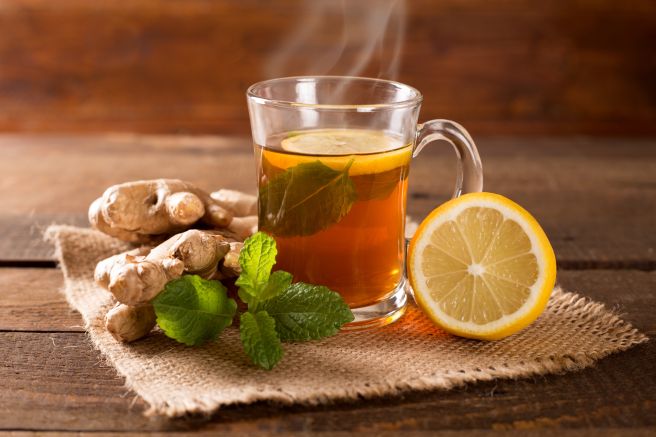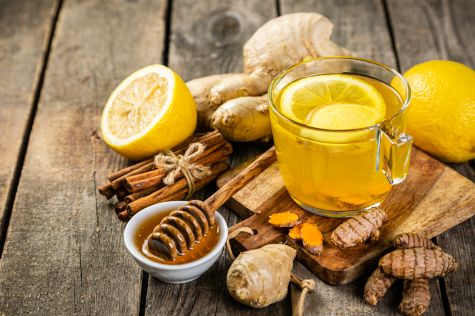If you’re looking for a natural caffeine-free alternative to coffee, ginger tea may be a good choice. This article will explore the caffeine content of ginger tea and help you decide if it’s a good option for you.
What Is Caffeine?
Caffeine is a bitter alkaloid found in many plants, such as coffee beans, cocoa beans, and kola nuts. It is a psychoactive drug that acts as a stimulant to the central nervous system and causes an increase in the activity of the brain cells, which results in improved mental performance and alertness.
What are the health benefits of caffeine?
Caffeine may have a wide range of health benefits. It can help boost energy levels, improve alertness and concentration, increase athletic performance and improve mental health. Caffeine can also have positive effects on the body by reducing the risk of heart disease and cancer, preventing age-related cognitive decline, boosting the immune system and reducing inflammation.
How Does Caffeine Affect Your Body?
Caffeine may have a wide range of effects on the body. It can help boost energy levels, improve alertness and concentration, increase athletic performance and improve mental health. It can also cause side effects such as insomnia, anxiety, nervousness and stomach upset if you consume too much caffeine.
Caffeine has also been shown to cause addiction, so you may want to stop consuming it because it may be difficult for you to stop drinking coffee or tea if you’ve become addicted to them.
It’s important to note that caffeine can have negative effects on people who are sensitive to it, such as those who suffer from high blood pressure or people who have a sensitivity to chemicals such as medications or drugs such as antidepressants.
The Risks Involved with Caffeine
The major risk associated with high caffeine consumption is that it can cause insomnia, anxiety, and even panic attacks. Avoid drinking too much caffeine because it can lead to insomnia, which will cause an increased risk of obesity and heart disease.
Caffeine affects different people differently, depending on their body chemistry. However, if you are sensitive to caffeine, then you should avoid drinking too much of them.
Is Ginger Tea Caffeine-Free?
Yes, ginger tea is caffeine-free. In fact, most ginger teas are made without any added caffeine. However, some ginger teas may contain small amounts of caffeine due to the spices used in the recipe. Therefore, if you’re concerned about caffeine intake, it’s best to speak with the manufacturer of the ginger tea you’re considering.
How Much Caffeine is in Ginger Tea?
The amount of caffeine in ginger tea varies depending on the recipe and brand. However, most ginger teas contain between 0 and 0.5 milligrams of caffeine per cup. Therefore, if you’re looking for a caffeine-free drink, ginger tea may be a good option for you.

Is Ginger Tea Good For You?
Ginger tea has many health benefits, including reducing inflammation and promoting healthy digestion. It also has anti-inflammatory properties, which can help reduce pain and inflammation in the body. In addition, ginger tea can help improve circulation and relieve pain from conditions such as arthritis and menstrual cramps.
When Should You Drink Ginger Tea?
You should drink ginger tea throughout the day to get the most benefit from it. You can drink it before or after meals to help improve your digestion or during times of pain or inflammation to provide relief.
Potential Health Benefits for Ginger Tea:
Ginger tea is a popular beverage that is enjoyed for its health benefits. This tea is made by boiling ginger in water and then drinking it. The health benefits of ginger tea include the following:
- Ginger tea can help improve digestion.
- Ginger tea can help reduce inflammation in the body.
- Ginger tea can help improve circulation and reduce pain.
- Ginger tea can help improve mental clarity and focus.
- Ginger tea can help reduce anxiety and stress levels.
How Ginger Tea Can HelpsImprove Circulation and Relieve Pain from Conditions Like Arthritis and Menstrual Cramps
Ginger tea is a hot beverage made from fresh ginger, water, and a pinch of salt. The tea is often served cold or at room temperature. Ginger tea is made from ginger, which is a member of the Zingiberaceae family.
Ginger is a spice that is used to add flavor to food and beverages. It is also used as a medicinal herb. Ginger has been used as a medicinal herb for centuries. In particular, ginger has been used to treat pain and inflammation.
Ginger also has anti-inflammatory properties and can help improve circulation and relieve pain from conditions such as arthritis and menstrual cramps.
How Does Ginger Tea Work?
Ginger tea works by reducing inflammation and pain. It does this by reducing the swelling and pain caused by inflammation. Ginger also has anti-inflammatory properties which can help reduce the number of cytokines in the body.
Cytokines are proteins that play an important role in the development of inflammation. In addition, ginger tea can help improve circulation by increasing blood flow to areas that are affected by inflammation. This increased blood flow can help reduce the amount of damage that is done to tissues by inflammation.
In Conclusion
Ginger tea is a caffeine-free drink that has many health benefits. It can help improve digestion, reduce inflammation, and improve circulation and pain relief. If you’re looking for a caffeine-free drink, ginger tea may be a good option for you.


